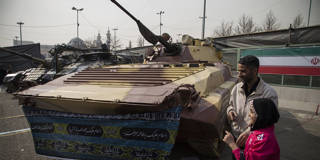The Price of War with Iran
Barack Obama has repeatedly avowed that he will prevent Iran from acquiring a nuclear bomb, rather than rely on deterrence, as has been done with other nuclear powers, such as Pakistan. But, although the costs of a containment strategy would be significant, the costs of fighting a war would be higher.
WASHINGTON, DC – One of the greatest challenges that US President Barack Obama will face in his second term is Iran’s pursuit of advanced nuclear technologies. While a nuclear Iran would damage America’s strategic position in the Middle East, action aimed at forestalling Iran’s nuclear progress also carries serious strategic and economic consequences.



WASHINGTON, DC – One of the greatest challenges that US President Barack Obama will face in his second term is Iran’s pursuit of advanced nuclear technologies. While a nuclear Iran would damage America’s strategic position in the Middle East, action aimed at forestalling Iran’s nuclear progress also carries serious strategic and economic consequences.